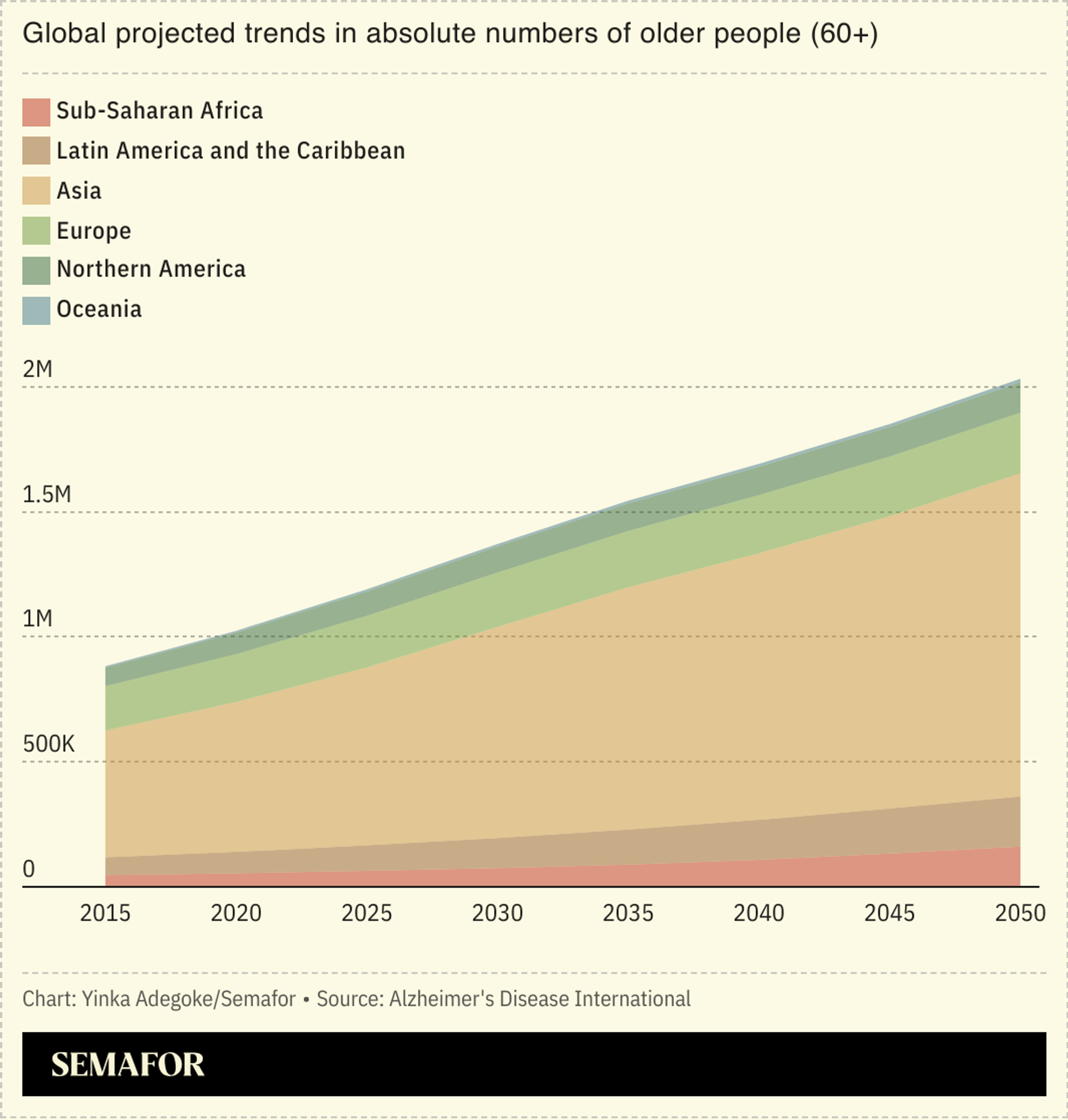The News
NAIROBI — African countries face a sharp increase in dementia cases due to longer life expectancies and healthcare systems that are inadequately resourced to treat the growing number of elderly patients, scientists have warned.
Dementia, which describes a loss of brain function such as thinking and remembering, already impacts millions of elderly individuals and their families on the continent, but it should not be seen as a normal part of aging, caution experts.
Africa, which is often recognized for its young population with a median age of 19, is also home to the fastest-growing elderly population in the world, according to the UN. Now, with the continent’s population living longer than before, age-related diseases like dementia are becoming more common, says the World Health Organization. The healthy life expectancy in Africa jumped by 10 years per person between 2000 and 2019, a greater rise than in any other region in the world during the same period.
Yet, research on dementia in Africa accounts for only 0.1% of the continent’s overall research output, according to an Aga Khan University’s study. This, combined with a focus on higher profile non-communicable diseases like cancer, leaves many dementia patients undiagnosed or in majority of the cases, diagnosed too late.
The biggest challenge for dementia detection and management in Africa stems from outdated technologies, insufficient research and poor data, said Dr. Zul Merali, the director of the Brain and Mind Institute at Aga Khan University in Nairobi. “We have not been measuring dementia properly,” said Merali. “We have been measuring when people come to the clinics and when they come, they already are very symptomatic and they know that something is wrong.”
In this article:
Know More
In sub-Saharan Africa, an estimated 2.13 million people were living with dementia in 2015, with numbers projected to nearly double every 20 years, increasing to 3.5 million by 2030 and 7.6 million by 2050, according to Alzheimer’s Disease International.

Many African countries lack widespread epidemiological studies or national registries for key non-communicable diseases. For example, early detection technologies, such as advanced brain imaging and blood biomarkers that are used in developed countries are not widely available in Africa. Most neurologists on the continent have to work with outdated tools, which further delays diagnosis and treatment, especially in rural areas where access to specialized clinics is especially limited.
To address this crisis, the Davos Alzheimer’s Collaborative, a global initiative working toward a cure for Alzheimer’s, and the Aga Khan University Brain and Mind Institute hosted a conference in Nairobi this month to highlight the growing burden of non-communicable diseases in Africa. Speakers said unlike conditions such as cancer, high blood pressure, and diabetes, dementia is receiving very little attention.
Vivianne’s view
Africa’s first dementia conference this month was a timely development that the global south has been in need of key support for years. African countries in particular have over time been left out of critical medical research and developments. This has meant that millions of people have been prevented from accessing medical care that could be life changing.
The invisible red tape from global health regulators that starves the continent of the best medical technology and clinical trials has left a lot of countries behind, despite Africans having some of the best medical talent globally.
With aging populations and limited healthcare infrastructure, dementia patients are often overlooked and branded as ‘mad old people’ leaving families and communities struggling to take care of them, and cope emotionally, and mentally with the stigma.
The View From Ghana
Dr Mary Amoakoh–Coleman, a senior research fellow at the University of Ghana, said African governments, health NGOs and health care practitioners have ignored brain conditions like dementia and focused on controlling communicable diseases like HIV/AIDS and malaria. African authorities and health professionals often treat dementia as simply being “a condition that comes with old age rather than a disease that can be detected and managed from very early on.” She said the same focus paid to diseases backed by donor research funds should be given to dementia, “because as our populations continue to grow and live longer, the number of people living with dementia also increases.”
